Publications
Articles, publications, books, tools and multimedia features from the U.S. Institute of Peace provide the latest news, analysis, research findings, practitioner guides and reports, all related to the conflict zones and issues that are at the center of the Institute’s work to prevent and reduce violent conflict.
Sports as a Metaphor and Tool for Peacebuilding
Sports speaks a language of its own that can be translated seamlessly from one culture to another, but often its impact is difficult to measure, said panelists at the United States Institute of Peace Sports and Peacebuilding Symposium.
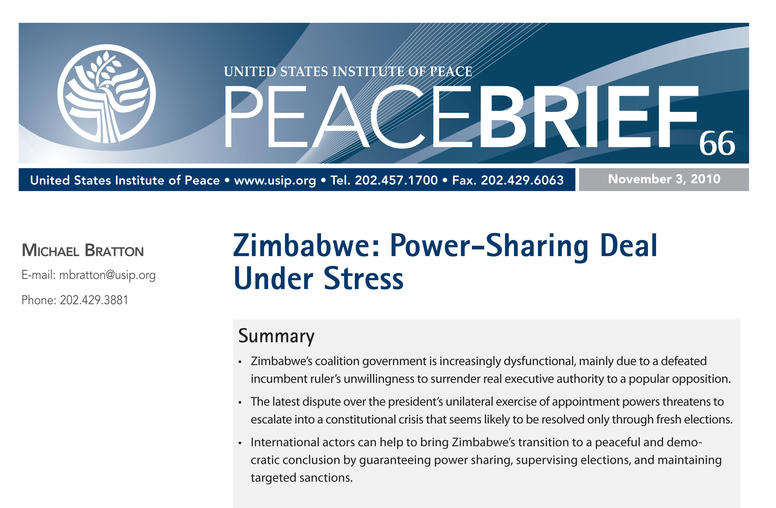
Zimbabwe: Power-Sharing Deal Under Stress
The fragile power-sharing deal between Zimbabwe’s political parties is close to breaking down. Michael Bratton, a Jennings Randolph senior fellow at the U.S. Institute of Peace, discusses the latest stalemate. This Peace Brief is based on press monitoring and interviews in Harare, Zimbabwe, Washington, D.C., and elsewhere between May and October 2010.
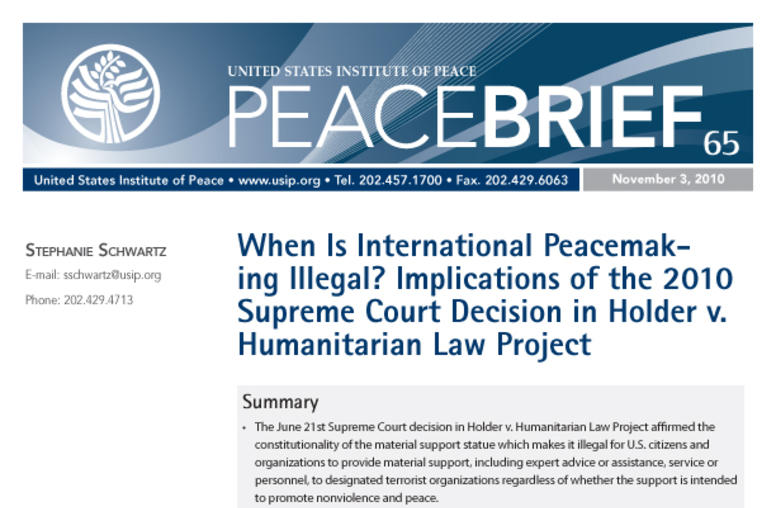
When Is International Peacemaking Illegal?
The June 2010 Supreme Court decision in Holder v. Humanitarian Law Project upheld the constitutionality of the material support law which makes it illegal for U.S. citizens and organizations to provide support, including expert advice and training, to designated terrorist organizations regardless of whether that support is intended to promote peace. This Peace Brief captures the discussion from a public event convened by the U.S. Institute of Peace on September 10, 2010.
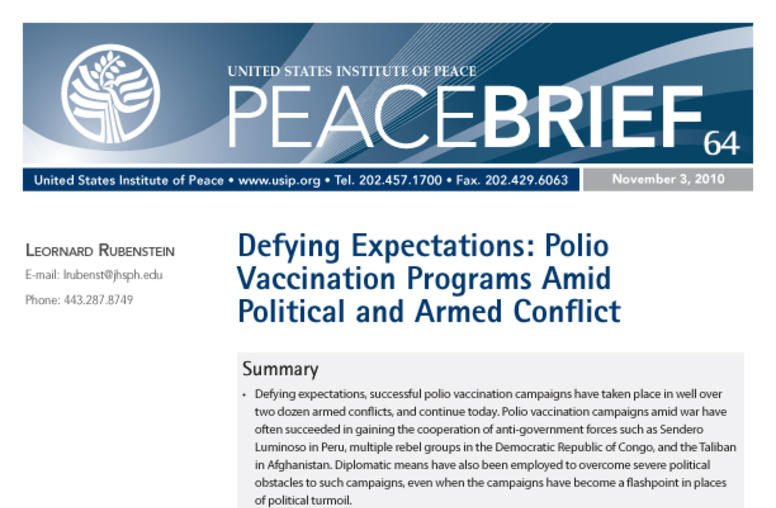
Defying Expectations: Polio Vaccination Programs Amid Political and Armed Conflict
This Peace Brief, based on a panel discussion convened by the U.S. Institute of Peace Health and Peacebuilding Working Group on June 29, 2010, was written by Leonard Rubenstein, coordinator of the USIP Working Group and a Senior Scientist at the Center for Public Health and Human Rights at the Johns Hopkins Bloomberg School of Public Health.
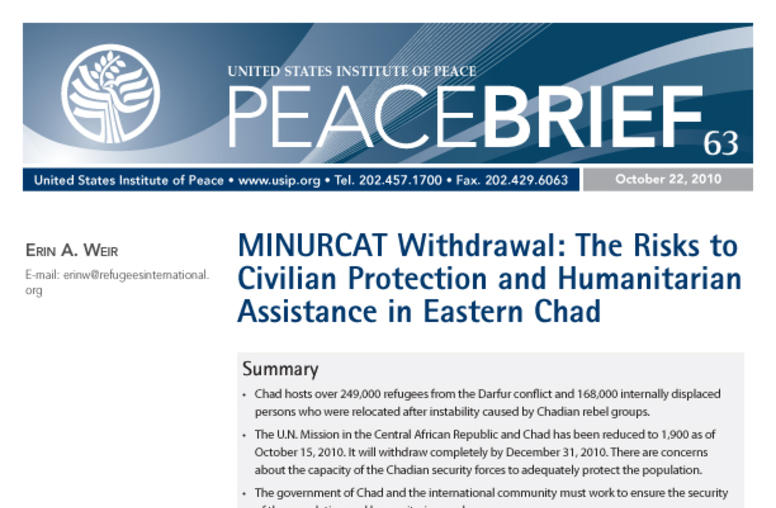
MINURCAT Withdrawal: The Risks to Civilian Protection and Humanitarian Assistance in Eastern Chad
This peace brief describes the security challenges facing eastern Chad and the pending withdrawal of the United Nations Mission in the Central African Republic and Chad.
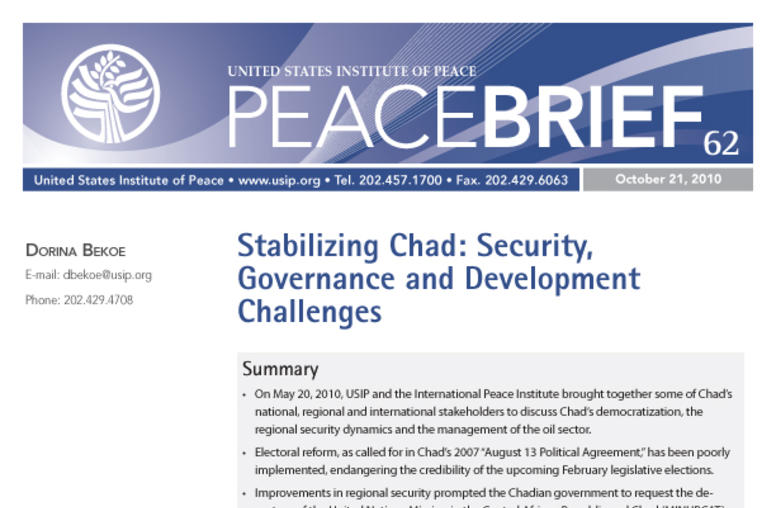
Stabilizing Chad: Security, Governance and Development Challenges
This Peace Brief summarizes some of the achievements and challenges facing Chad’s democratization, peacebuilding, and development.
On the Issues: Haiti Hit by Hurricane Tomas
Robert Perito, director of USIP's Initiative on Security Sector Governance under the Centers of Innovation, discusses recent developments in Haiti, and the challenges facing the country moving forward.
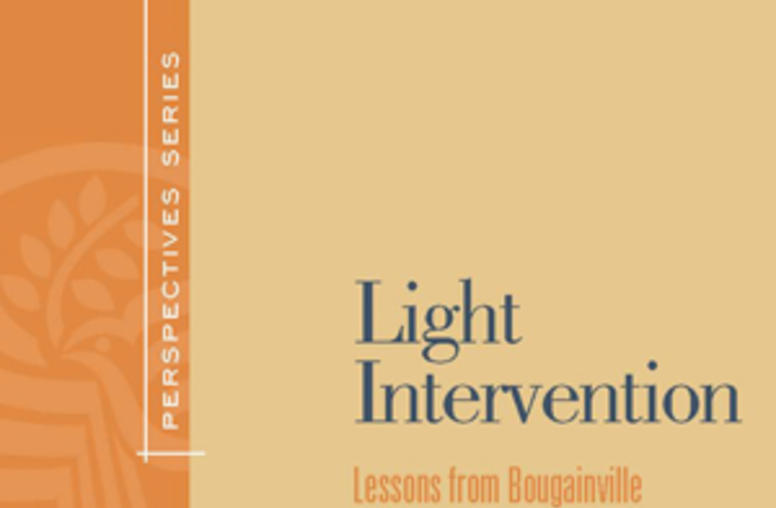
Light Intervention
Regan examines the ideal conditions for light international intervention and analyzes the remarkably successful Bougainville peace process, which ended the apparently intractable, violent, and deeply divisive separatist conflict that for much of the period from 1988 to 1997 destabilized both Papua New Guinea and the wider Pacific islands region.
Academy Course Simulations Stimulate Critical Thinking
Simulations are key to engaging and identifying the differences and similarities between groups, and are often the first step in peacemaking, according to United States Institute Academy for International Conflict Management and Peacebuilding Instructor Peter Weinberger. These simulations provide students with critical thinking skills which they can translate into action in the field.
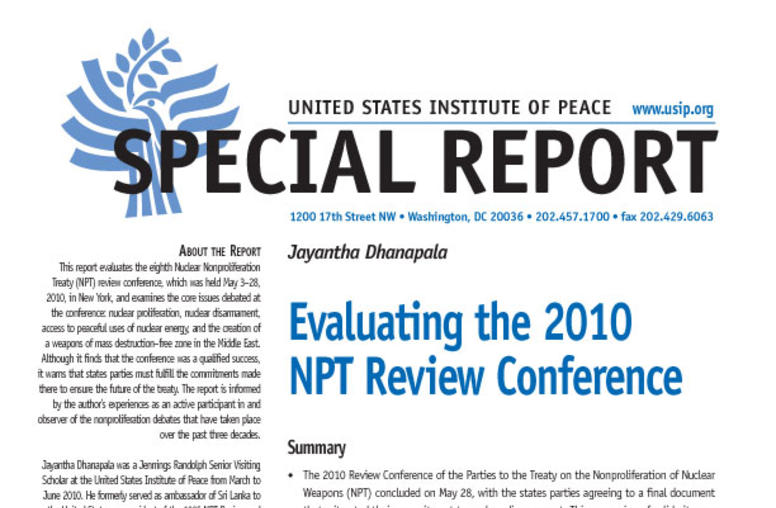
Evaluating the 2010 NPT Review Conference
This report evaluates the eighth Nuclear Nonproliferation Treaty (NPT) review conference, which was held May 3–28, 2010, in New York, and examines the core issues debated at the conference: nuclear proliferation, nuclear disarmament, access to peaceful uses of nuclear energy, and the creation of a weapons of mass destruction–free zone in the Middle East.